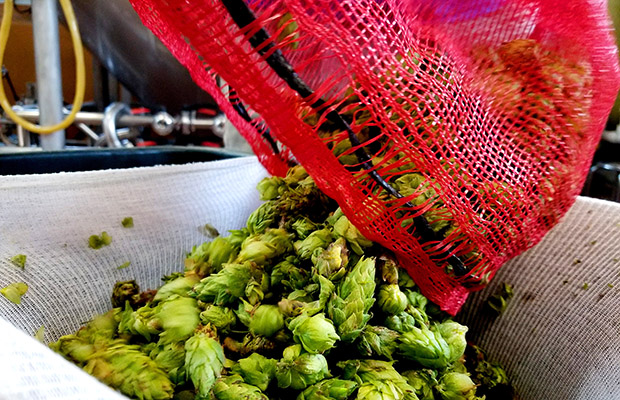
Though malted barley has been consistently put in beer, people were drinking fermented beverages long before they started using hops in beer as far back as the 9th Century, but put the two together and you have half of the ingredients to brew a beer.
When your brewery is growing, it can be important to have established hop and malt contracts so you never find yourself in a shortage while having the right contract can be key so you don’t find yourself with a bigger supply than your brewery can handle. Planning ahead and considering your long-term goals are paramount.
With about 80 different varieties of hops available today and more constantly being developed, Boulevard Brewing Company’s brewmaster Steven Pauwels said the key is knowing what you want out of a contract.
The Kansas City, Missouri-based brewery began contracting malt early in the company’s start as far back as 1989 but Boulevard didn’t start contracting hops until later, when the brewery’s production was around 20,000 bbls.
“Contracting creates a partnership,” Pauwels said. “the contractor delivers according to your spec and the buyer/brewer agrees to take what is contracted.
“We are 100% contracted on base malt with two suppliers and contract upwards of 95% for hops with several brokers and growers. Some of the specialty malts are contracted also.”
Now that the brewery is up to producing 161,000 bbls in 2019 (including Fling, craft cocktails by Boulevard), and on track to do 165,000 for 2020 (including Fling and Quirk, its hard seltzer line), having hop and malt contracts come in handy.
The brewery isn’t limiting itself, instead it contracts from multiple sources. BSG CraftBrewing, Canada Malting, Proximity Malt, and Briess Malt & Ingredients Co. supply the brewery with its malt. Boulevard has contracts with hops suppliers HAAS, Yakima Chief Hops, Steiner, Hollingberry, BSG Hops, Roy Farms and Segal Ranch.
Pauwels added that the benefits of contracting malt is that it will meet your individual specifications to help with quality and consistency in your beer. For hops, having a contract guarantees that the hops are grown specifically for your needs and you still have to select your preferred lot.
You’ll hear a lot of brewers advising on getting a grain silo to store your malt, including Jason Perkins from Allagash.
“For a brewery our size and even substantially smaller breweries, the payback on a bulk silo was pretty quick,” he said. “Even for not a ton of usage you can pay for it relatively quickly. Ordering in bulk is helpful.”
Super sacks work too.
“Large bulk is going to get a drop in price per pound, which adds up pretty quickly over a year,” Perkins said of super sacks. “Also, you have less recycling of bags, less handling, with less wear and tear on employees.”
Because Great Divide has, in the past, had the problem of sitting on long contracts of certain hop varieties for beers that were discontinued, the brewery has had to implement a multi-point strategy to limit exposure with those contracts.
“As you build a business relationship with them it is more of an ongoing conversation about what your needs might be and how they might assist you in reaching your goals,” Brewing Manager Brandon Jacobs said.






Be the first to comment